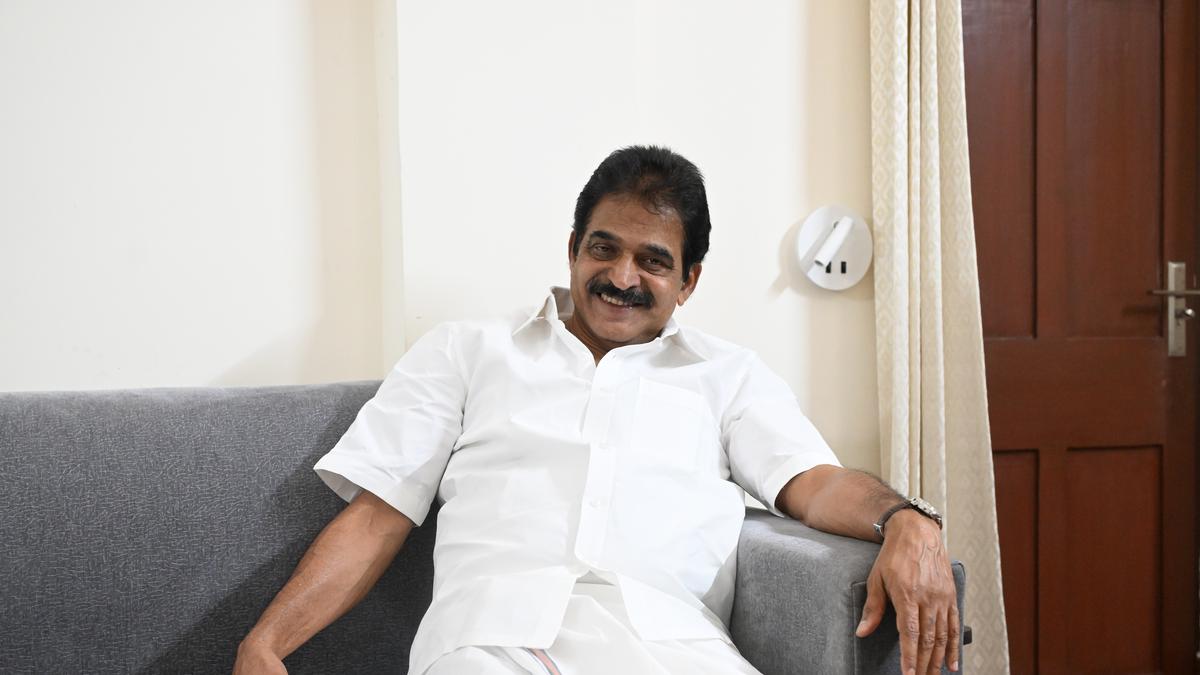The passage of the Waqf Bill was the main highlight of the Budget session, which concluded on Friday (April 4, 2025). But the Bill also deepened the political fair lines. Congress general secretary (organisation) and Public Accounts Committee (PAC) Chairman K C Venugopal speaks with The Hindu on the key takeaways.
This session witnessed some tension between Lok Sabha Speaker Om Birla and the Congress party. Without naming Congress Parliamentary Party chairperson Sonia Gandhi, Mr. Birla described her comments about the Waqf Bill being “bulldozed” as “unfortunate.”
It is very sad to say that, nowadays, parliamentary procedures and conventions are being totally violated by the current government. It is most unfortunate that the BJP wants to politicise the office of the Lok Sabha Speaker. We have serious complaints about how Parliament is being run. We had submitted a letter to the Speaker listing 12 important issues. Parliament functions based on two principles—rules and the Speaker’s directions as well as Parliamentary conventions. Here, both are being violated by this government.
We wanted to raise the issue of tariffs imposed by the U.S. but the Chair didn’t allow and we were compelled to stage a protest outside the House. This is the biggest issue that will impact the lives of our citizens but we are unable to discuss it in Parliament.
In this session, we sought discussions under Rule 193 [short duration discussion without voting]. However, even when the Business Advisory Committee (BAC) recommended certain discussions, the government overruled them. There is a saying that the government must have its way and the Opposition must have its say.
The Constitution mandates the position of Deputy Speaker, yet this government has not appointed one. This is unprecedented. There is no instance in parliamentary history where a government has avoided appointing a Deputy Speaker for so long.
And regarding Sonia Gandhi ji’s statement, she was speaking in a Congress Parliamentary Party meeting about the general attitude of this government.
We also saw the Speaker censuring the Leader of the Opposition (LoP) Rahul Gandhi about his conduct in the House. Mr Gandhi, on the other hand, said that he is not allowed to speak in the House
According to the book on parliamentary practices by Shakdher and Kaul [Practice and procedure of Parliament: M N Kaul and S L Shakdher], the Leader of the House and the Leader of the Opposition have equal rights in Parliament. Basically, when the government presents its viewpoint, the Opposition must also be allowed to voice its concerns. But whenever the LoP raises serious issues, they are not given the opportunity to speak. If you have an issue with the Leader of the Opposition, you can call him in the chamber and exchange your views. That’s a healthy parliamentary tradition. Instead, they [the government] are attempting to insult the LoP and, in doing so, the institution of the Opposition itself.
Prime Minister Narendra Modi has called the passage of the Waqf (Amendment) Bill marks a watershed moment in the collective quest for socio-economic justice, transparency and inclusive growth, while you call it an assault on Constitution.
The Prime Minister may call it a “watershed moment,” but for us, it is a clear attack on constitutional principles. This aligns with the larger agenda of the BJP and the Sangh Parivar—to target religious minorities and deny their constitutional rights, including religious freedom under Article 26.
For the BJP and the Sangh Parivar, this may indeed be a “watershed moment” because it helps them push their divisive agenda. We have seen similar communal rhetoric from BJP leaders during the 2024 Lok Sabha election, saying mangalsutras would be snatched and so on That is why we are saying this is an attack on the Constitution.
Another highlight of the session was the 2 a.m. discussion in the Lok Sabha on Manipur. You were seen strongly protesting about it. BJP pointed out that LoP didn’t wait for the Home Minister’s reply.
We had even suggested to the Speaker that a discussion could be held the following morning — Thursday morning — whether for an hour, an hour and a half, or two hours. There was no urgent business before the House. Instead, the government deliberately scheduled the Manipur Bill discussion at an inconvenient time, ensuring no real debate could take place. This is an insult to the people of Manipur, who deserve at least some basic decency from the Central government. In the past, we urged the Prime Minister to convene an all-party meeting and send a unified message of solidarity. In Parliament, this was a crucial opportunity to send a strong message, but instead, the government deliberately scheduled the discussion in the wee hours when hardly anyone could participate meaningfully. Maybe they avoided a proper discussion because they are aware of their failures in Manipur.
One also saw the INDIA Bloc all of them coming together on the Waqf bill, even though the constituents were fighting each others during recent Assembly polls in Haryana and Delhi. Is the alliance now restricted only to Parliament?
The INDIA Bloc was formed as a national-level alliance to counter the BJP government’s authoritarian rule. Differences between parties during State elections are natural, but that does not affect the broader alliance at the national level. We continue to consult each other on national issues and will maintain a united front against the BJP’s policies. The BJP is posing a serious threat to democracy, and that is why the INDIA Bloc remains committed to working together.
Published – April 05, 2025 08:41 am IST
